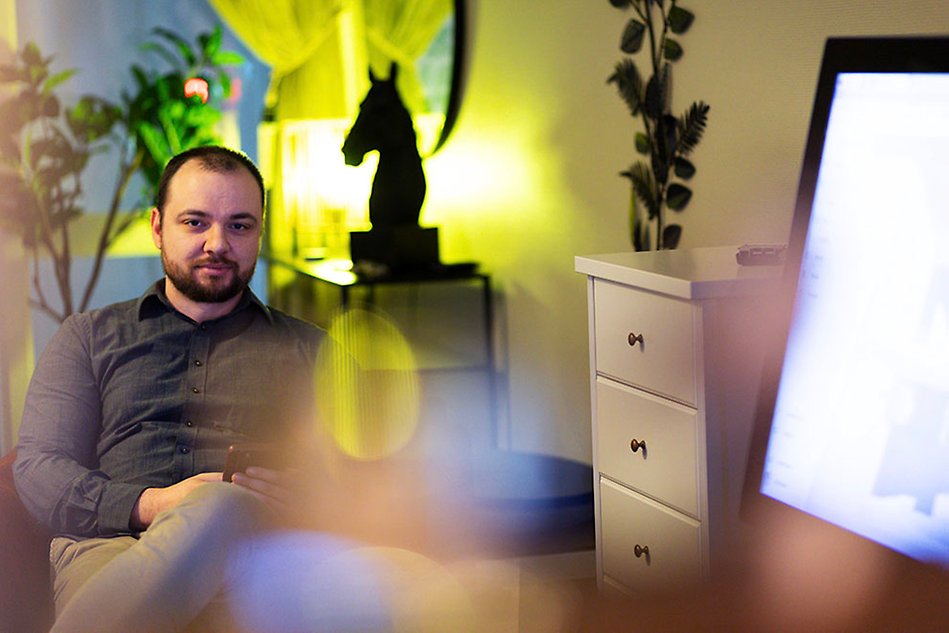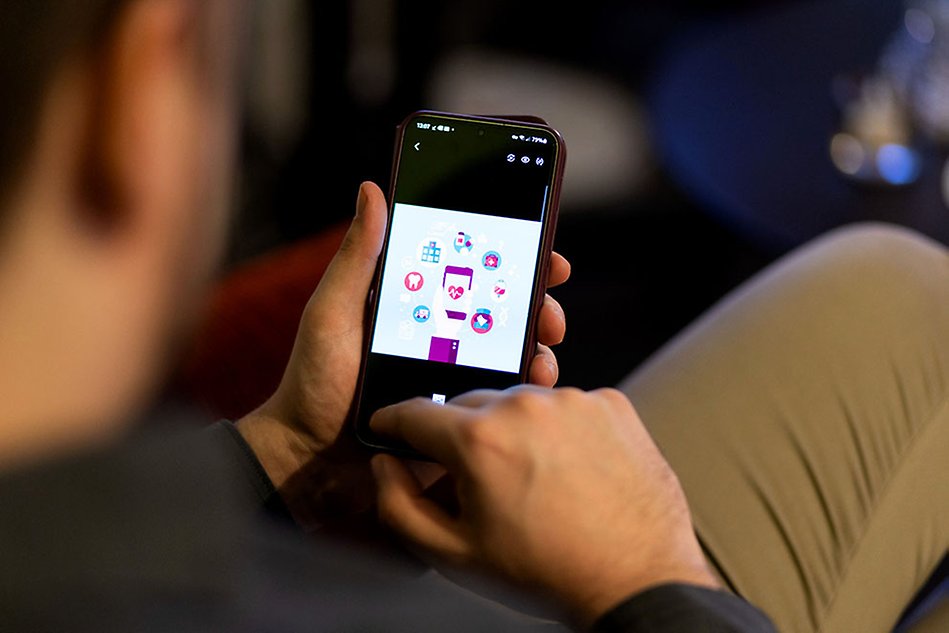Personal AI solutions challenge privacy
A few years ago, Alexander Galozy, a doctoral student in information technology, presented his licentiate thesis on how AI can support healthcare by reducing workload, lowering costs and empowering patients’ autonomy. As Alexander Galozy now defends his doctoral dissertation, he shares insights into progress and developments since then.

With my research, I provided a little step forward to address the issue of privacy in this domain, as it will become, and certainly is, very relevant today and in the future.
Alexander Galozy
When Alexander Galozy wrote his licentiate thesis, it was part of the iMedA project, where the research group developed a mobile application with customised reminders and personalised information. To assist patients in adhering to their treatment and medication plans, the mobile application needs more information to understand the patient group better. Therefore, large amounts of existing electronic health records (EHR) are analysed using machine learning models. Since the licentiate thesis, Alexander Galozy has, among other things, worked on improving the learning speed of the algorithms.
“We have tested increasing the speed at which our algorithms more efficiently utilise previously collected data and intelligently analyse patterns. This has reduced the number of interactions required to offer customised solutions in the mobile application. This not only enhances user engagement but also strengthens the ability to provide patients with more effective and personalised interventions,” says Alexander Galozy.

Alexander Galozy in the intelligent apartment (HINT) at Halmstad University. It is a realistic home environment where research and experiments are developing innovations for healthcare.
Imbalance between performance and privacy
With his fellow researchers, Alexander Galozy has also investigated privacy concerns regarding user data by analysing how effective simple noise-additive schemes are at preserving user data privacy in a recommender system. A recommender system is an IT-support system that uses AI algorithms on big data to make suggestions and recommendations to the end-user, for example, a doctor. By adding noise, the researchers hoped to mask and preserve private data about individual patients.
“The recommender system is not unlike something you would use in mobile health (mHealth) setting to provide digital interventions”, Alexander Galozy says. He continues, “We have found that these noise-additive schemes, unfortunately, are insufficient for preserving privacy or destroying too much of the information. There is an interesting avenue for further research to find a better performance-privacy trade-off.”
Mobile healthcare
Mobile healthcare refers to healthcare services provided or supported through mobile technology. In English, this is referred to as mobile health or mHealth

Alexander Galozy aims to develop mobile healthcare to be both safer and more tailored.
AI solutions for personalised care
Alexander Galozy believes that mHealth will become more and more important in the future as the population ages. He hopes his research will make it easier to apply probability methods when developing algorithms and applications, more specifically Bandit methods, that can help make suggestions, estimations and choices. Alexander Galozy thinks that this will be useful not only in the mHealth domain but also in other domains.
“It will allow patients to receive good interventions which are more tailored to their needs – right when they need it”, Alexander Galozy says. He continues, “Also, I think the topic of privacy and how it affects performance in the Bandit research is just emerging, and we do not know a lot yet. With my research, I provided a little step forward to address the issue of privacy in this domain, as it will become, and certainly is, very relevant today and in the future.”
Text: Anna-Frida Agardson
Bild överst: iStock
Bild övriga: Anna-Frida Agardson
About Alexander Galozy
Alexander Galozy was born in Germany. He has an engineering degree in Engineering Informatics from Fachhochschule Wuerzburg-Schweinfurt and a Master’s in Embedded and Intelligent Systems from Halmstad University. His interest in information technology began in early childhood. However, it didn’t take off until he received his first degree in Engineering Informatics. He came to Halmstad in 2016 to delve into the subject of AI and thought that the University offered an attractive programme. On December 15, he defended his doctoral thesis titled ‘Mobile Health Interventions through Reinforcement Learning’ at Halmstad University.
About the doctoral defence
Thesis title: Mobile Health Interventions through Reinforcement Learning External link.
External link.
Chair of the defence: Associate Professor Eren Erdal Aksoy, Halmstad University
Opponent: Senior Lecturer, Allan Tucker, Brunel University London
Examination board: Professor Myra Spiliopoulou, Otto von Guericke Universität Magdeburg, Professor Panagiotis Papapetrou, Stockholm University and Professor Janna Hastings, University of Zurich
More information
Research at the School of Information Technology (ITE)
Alexander Galozy’s doctoral thesis: Mobile Health Interventions through Reinforcement Learning External link.
External link.

